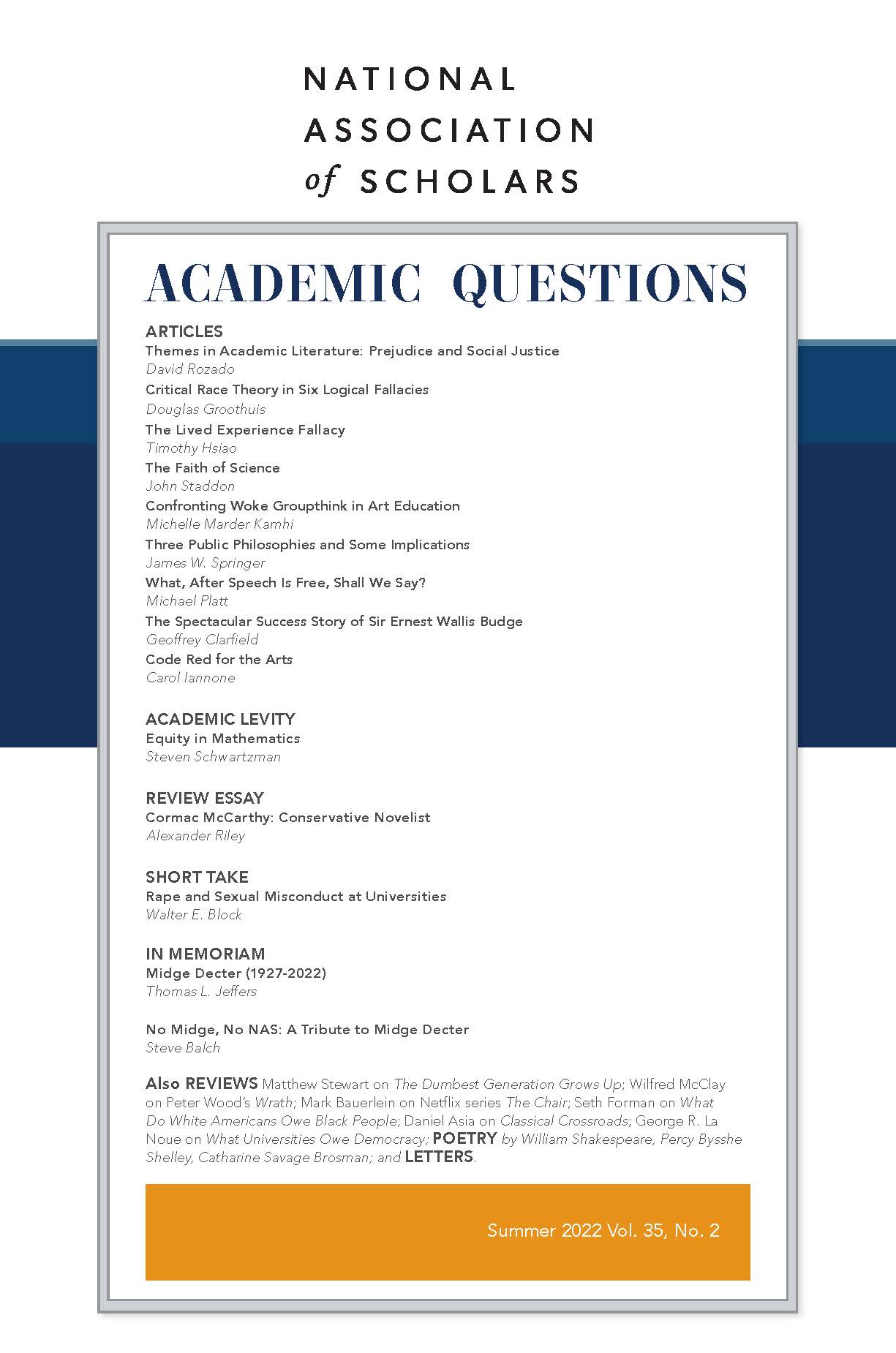Steven Schwartzman is a former math teacher; [email protected]
Did you hear the latest news about equity in mathematics? Because the word odd has negative connotations like “strange” and “not usual,” a group of college math students demanded that all whole numbers, whether previously considered odd or even, must now be designated even. Professors of mathematics immediately apologized to the students for the centuries of evenist domination they'd been complicit with, and they promised that no future syllabi or textbooks would perpetuate evenism.
Then an ideologically purer subset of students took issue with the first group, asking why they'd stopped at the whole numbers, which comprise only a tiny oppressive elite of all numbers. The second student group began chanting: “Hey hey, ho ho, fraction-phobes have got to go.” The original student group found that chant, especially the “hey hey, ho ho” part, so profoundly convincing that they immediately recognized the disparate impact that their "all whole numbers are even" decree would have on fractions. They agreed that the sacred value of inclusion requires that fractions be included as whole numbers from now on. The mathematics professors promptly issued an apology for not having recognized their unconscious bias against fractions.
It didn't take long before a third group of math students more radical than the second group started agitating because of the harm that would still befall the irrational numbers, which can never be expressed as fractions no matter how much affirmanumerative action colleges and government agencies give them. Imagine those numbers going through life saddled with the name irrational, as if they're not in their right mind! The second student group soon confessed their lack of inclusiveness and agreed, for the sake of belonging, that all numbers will now belong to the set of whole numbers. The mathematics professors quickly issued an abject apology for othering the numbers they hadn't previously accepted as whole numbers.
Barely had things settled down when a fourth group of math students complained that all the previous groups were still oppressors because categorizing numbers in any way at all is a form of profiling and is therefore racist. For the sake of equity, the fourth group insisted that the only allowable view is that all numbers are equal. From now on, no matter what number a student comes up with as an answer to a question on a math test, that answer has to be correct because all numbers are equal. Similarly, students must now be allowed to pay whatever amount they want for tuition because any number of dollars is equal to any other number of dollars. The mathematics professors immediately acceded to the new demands and issued a sincere apology for the violence caused by their previous silence about all numbers actually being equal.
A fifth group agreed with the general idea but insisted that because old-fashioned equality is racist, all numbers must be considered equitable rather than equal, and henceforth the equal sign, =, must get replaced by a new equity sign. A contest would be held to accept proposals for what the new equity sign will look like. Of course only people with a long and oppressive history of intersectional co-morbidities would be allowed to enter the contest.
But then a sixth group of students pointed out that all those changes were actually meaningless because, let's face it, mathematics is based on objectivity and rigor, which are tools of the cisheteronormative white supremacist patriarchy. The mathematics professors, without even waiting to hear the sixth student group's demands for change, realized that the only proper course of action is to stop studying and teaching the horrid subject of mathematics altogether. They shut down the mathematics department and in its place they created a new department to offer Doctorates in Diversity Training (DDT).
Okay, so all those things didn't really happen—at least not yet. Give it a few months.
Image: George Becker, Public Domain













